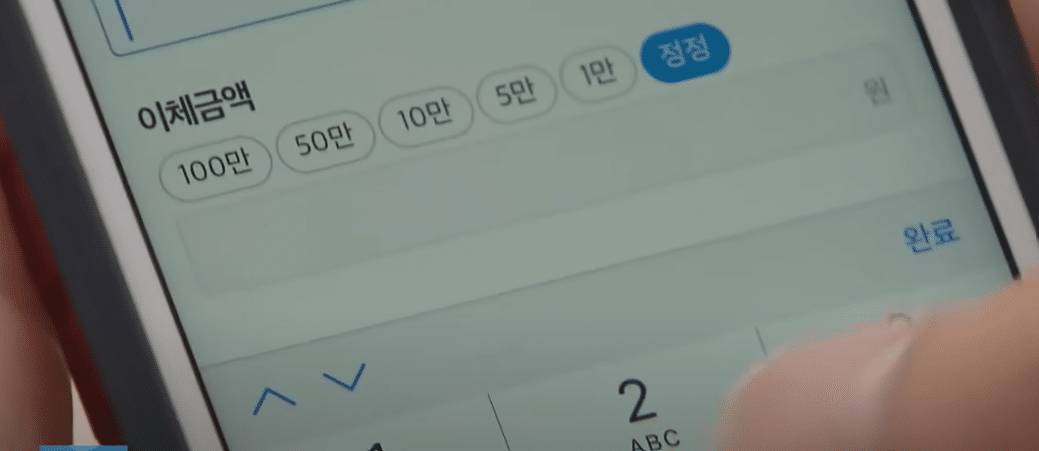
South Korean crypto exchanges say they blocked over $82 million worth of transactions linked to romance scams last year.
Per Seoul Shinmun, the crypto exchange Coinone claimed catfishing and other romantic scams that make use of crypto were now “rampant” in South Korea.
Coinone said that it had halted over $2.6 million worth of romance scam-linked trades. The firm said it used an “abnormal transaction detection system” and “24-hour monitoring” network to protect customers.
The announcement comes days after a warning from the Financial Supervisory Service (FSS).
On January 22, the FSS claimed that there had been a rise in crypto-related scams on social media sites.
The regulator told the public to beware of romance scammers. The FSS also warned of the dangers of unsolicited investment-related “recommendations and advice.”
And the regulator said that the public should be “particularly” wary of “people of the opposite sex or strangers who say they will help with investment.”
🤔 Fake Crypto Websites on Google Ads Drain $3 Million in Christmas Phishing Scam
A new report reveals that scammers stole over $3 million in crypto from victims this holiday season using fake crypto websites promoted through Google Ads.#CryptoNewshttps://t.co/HMBnJiQWXB
— Cryptonews.com (@cryptonews) December 26, 2023
‘Romance’ the Bait for Crypto Scam Masterminds
“Romance scammers,” the FSS wrote,” are often “affiliated” with “illegal” or bogus crypto exchanges.
Coinone gave the example of a male customer in his 60s, who was “deceived by a romance scam group” and “almost surrendered all of his crypto holdings.”
The exchange said that the man had attempted to send his coins to a private wallet. The man thought the wallet belonged to the female owner of a hair salon in Japan.
The exchange’s staff said it had detected the fact that the man had recently installed a “Japanese chat app” and a Japanese-Korean translation app on his mobile phone.
The company also detected that the name on the wallet differed from what the man had entered in his transaction request.
Coinone called the man to ask for more details about the transaction. Employees heard that the man’s new “friend” had asked him to send Bitcoin to a “crypto exchange” before coming to “visit” him in South Korea.
The “exchange” turned out to be bogus, and Coinone told the man he was likely the target of a romance scam.
Other South Korean exchanges say they have also begun round-the-clock transaction monitoring to block suspicious withdrawal requests.
They are also building databases of suspected scam crypto exchanges. And they have recently begun working with regulators to find and report bogus trading platforms.

Rise in South Korean Crypto-powered Romance Scams
In its warning, the FSS added that scammers often pose as tax officials and securities providers who “request payment” in crypto.
Criminals allegedly issue potential victims dire warnings. They say bank accounts and crypto wallets will be frozen if victims do not send coins or money.
Organized groups of East Asian crypto scammers are turning to dating apps in search of targets.
In 2022, Japanese police also warned of a sharp rise in scam incidents involving “international dating” sites.
South Korean police have urged the public to steer clear of people on dating sites who try to convince them to invest in online crypto mining projects.
Also in 2022, a South Korean woman was jailed for five years after she was found guilty of drugging a man she had met online.
The woman robbed the man of $87,000 worth of tokens after learning that he was a crypto investor.

South Korean crypto exchanges say they blocked over $82 million worth of transactions linked to romance scams last year.
Per Seoul Shinmun, the crypto exchange Coinone claimed catfishing and other romantic scams that make use of crypto were now “rampant” in South Korea.
Coinone said that it had halted over $2.6 million worth of romance scam-linked trades. The firm said it used an “abnormal transaction detection system” and “24-hour monitoring” network to protect customers.
The announcement comes days after a warning from the Financial Supervisory Service (FSS).
On January 22, the FSS claimed that there had been a rise in crypto-related scams on social media sites.
The regulator told the public to beware of romance scammers. The FSS also warned of the dangers of unsolicited investment-related “recommendations and advice.”
And the regulator said that the public should be “particularly” wary of “people of the opposite sex or strangers who say they will help with investment.”
🤔 Fake Crypto Websites on Google Ads Drain $3 Million in Christmas Phishing Scam
A new report reveals that scammers stole over $3 million in crypto from victims this holiday season using fake crypto websites promoted through Google Ads.#CryptoNewshttps://t.co/HMBnJiQWXB
— Cryptonews.com (@cryptonews) December 26, 2023
‘Romance’ the Bait for Crypto Scam Masterminds
“Romance scammers,” the FSS wrote,” are often “affiliated” with “illegal” or bogus crypto exchanges.
Coinone gave the example of a male customer in his 60s, who was “deceived by a romance scam group” and “almost surrendered all of his crypto holdings.”
The exchange said that the man had attempted to send his coins to a private wallet. The man thought the wallet belonged to the female owner of a hair salon in Japan.
The exchange’s staff said it had detected the fact that the man had recently installed a “Japanese chat app” and a Japanese-Korean translation app on his mobile phone.
The company also detected that the name on the wallet differed from what the man had entered in his transaction request.
Coinone called the man to ask for more details about the transaction. Employees heard that the man’s new “friend” had asked him to send Bitcoin to a “crypto exchange” before coming to “visit” him in South Korea.
The “exchange” turned out to be bogus, and Coinone told the man he was likely the target of a romance scam.
Other South Korean exchanges say they have also begun round-the-clock transaction monitoring to block suspicious withdrawal requests.
They are also building databases of suspected scam crypto exchanges. And they have recently begun working with regulators to find and report bogus trading platforms.

Rise in South Korean Crypto-powered Romance Scams
In its warning, the FSS added that scammers often pose as tax officials and securities providers who “request payment” in crypto.
Criminals allegedly issue potential victims dire warnings. They say bank accounts and crypto wallets will be frozen if victims do not send coins or money.
Organized groups of East Asian crypto scammers are turning to dating apps in search of targets.
In 2022, Japanese police also warned of a sharp rise in scam incidents involving “international dating” sites.
South Korean police have urged the public to steer clear of people on dating sites who try to convince them to invest in online crypto mining projects.
Also in 2022, a South Korean woman was jailed for five years after she was found guilty of drugging a man she had met online.
The woman robbed the man of $87,000 worth of tokens after learning that he was a crypto investor.